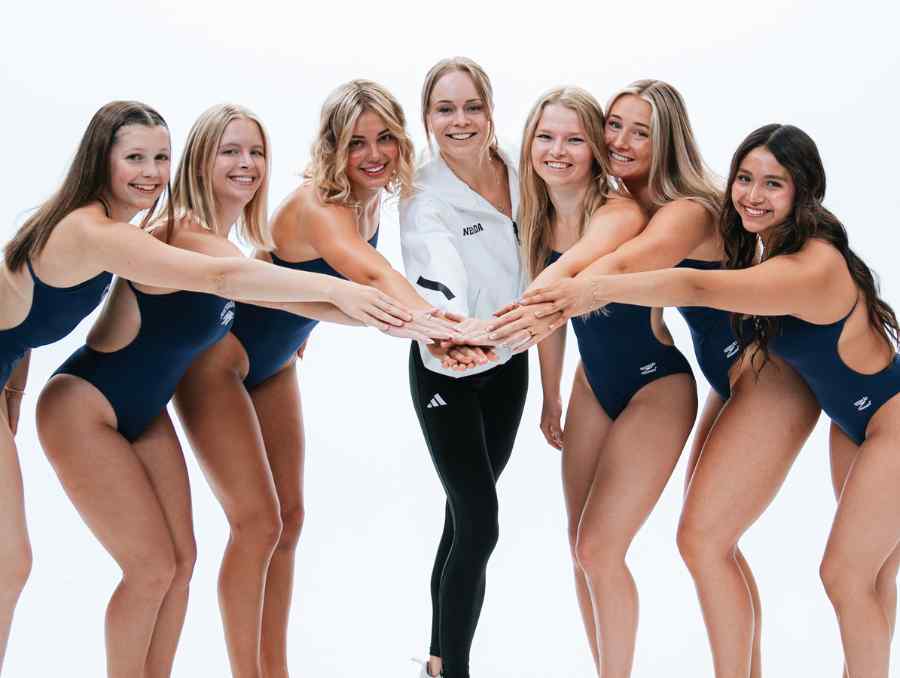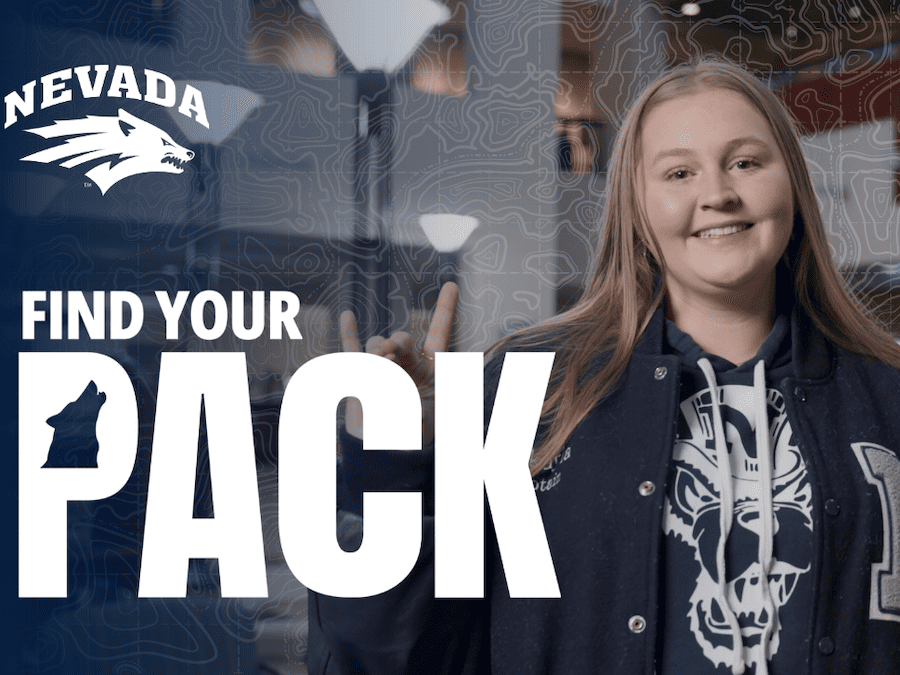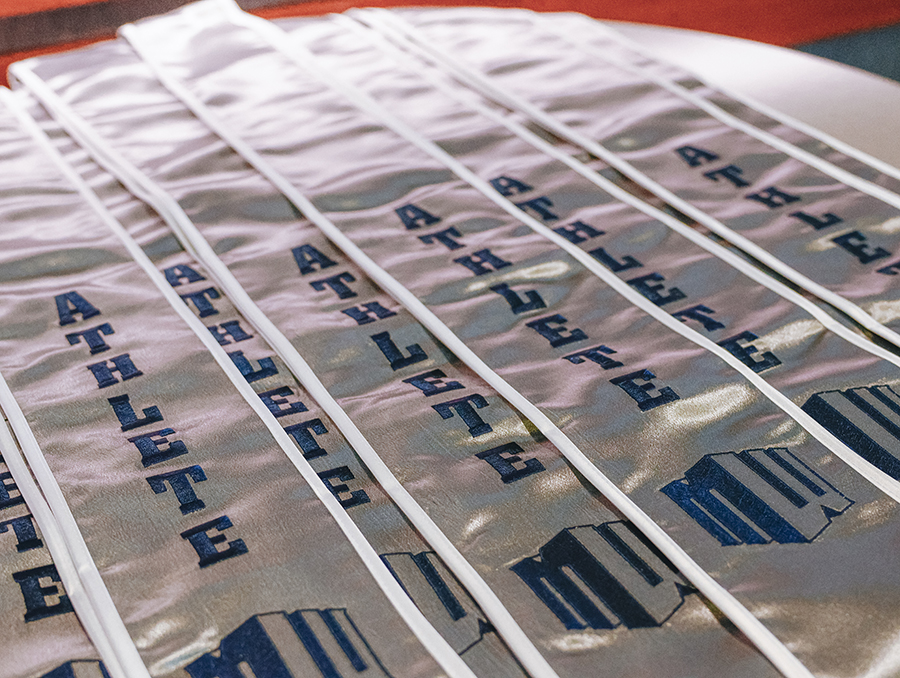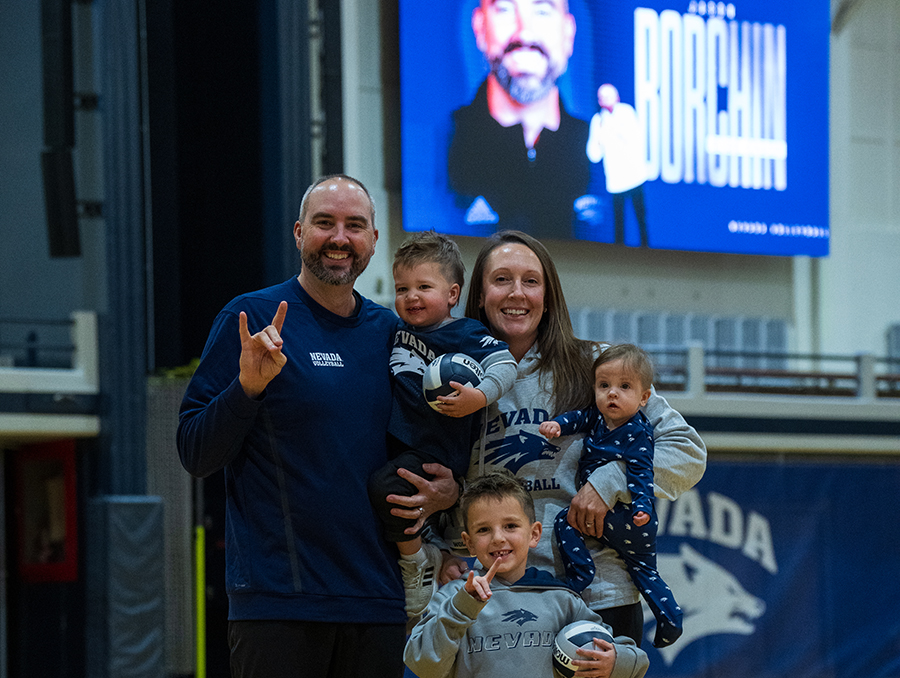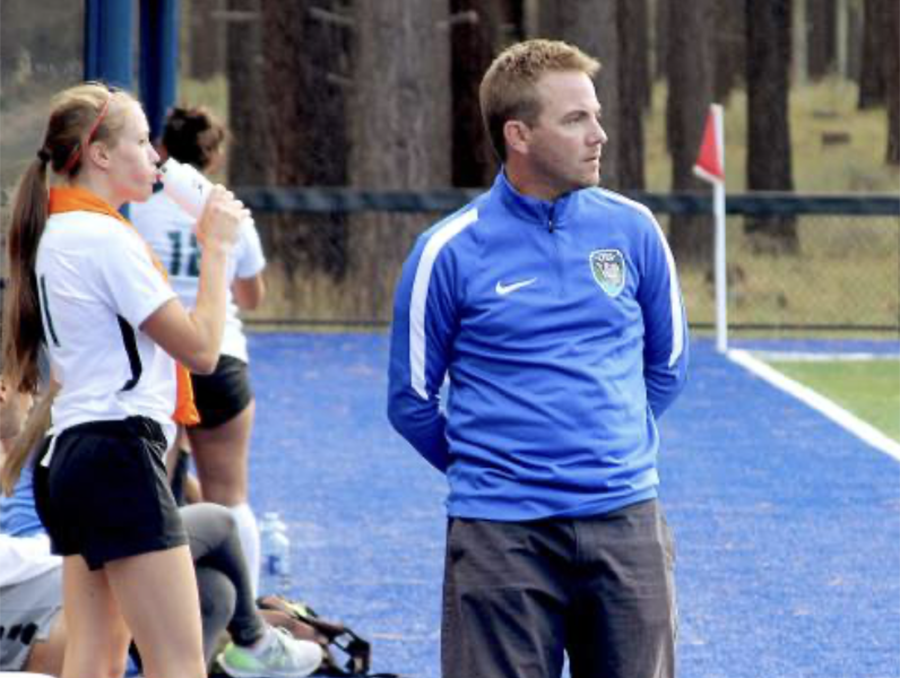Krysta Palmer’s path from student-athlete to head diving coach at the University of Nevada, Reno is a story of perseverance and purpose. Palmer was born and raised in Carson City and is Nevada alumna. She overcame multiple injuries that might have ended her athletic career, but instead she pivoted from gymnastics to trampoline and finally to diving at age 20. That decision carried her all the way to the 2020 Tokyo Olympic Games, where she earned a bronze medal in 3-meter springboard diving. Today, she leads Nevada’s women’s diving team with that same determination and heart.
In her first season as head coach, Palmer oversees a six-member roster that includes divers from Nevada, across the United States and around the world. She is guiding the team through early-morning practices, travel, academic balance and the pursuit of both athletic and personal growth.
Palmer, who earned her bachelor’s degree in kinesiology from the School of Public Health in 2016, was recently named a Distinguished Alumna and will be honored this week at the Nevada Alumni Association Awards.
“Krysta’s recognition as a Distinguished Alumna is a proud moment for the School of Public Health,” said Dean Muge Akpinar-Elci. “She embodies how education, discipline and compassion can create lasting impact. Her leadership shows our students that success is built not only on talent, but on commitment to health and community. Her honor is deeply deserved.”
Coach Palmer stepped away from the pool and shared how her education, experience and coaching philosophy influence the next generation of student-athletes.
What inspired you to study kinesiology and public health at Nevada?
I have always been fascinated by how the body works and what keeps it healthy. As an athlete, I learned a lot through experience, but my classes gave me the science behind movement and performance. It helped me understand how to train effectively, prevent injury and support long-term wellness. That knowledge became the foundation for how I coach today.
“Rest is not weakness; it is part of the process. And that is true for every student. You cannot perform your best if you do not give your mind and body time to recover.”
What motivated you to become the head diving coach?
Coaching felt like the natural next step after my athletic career. I had coached gymnastics and trampoline before, and diving was a chance to bring everything together. It is a new challenge, motivating and leading others instead of focusing on my own training. It is incredibly rewarding to help my athletes pursue their goals and discover what they are capable of.
You talk often about recovery. Why is that such an important part of training?
Recovery is essential. We train hard, and it is my job to make sure my athletes stay healthy. That includes foam rolling, stretching, hot and cold therapy and getting enough rest. I tell them sleep is the best recovery tool, eight to nine hours if they can. Rest is not weakness; it is part of the process. And that is true for every student. You cannot perform your best if you do not give your mind and body time to recover.
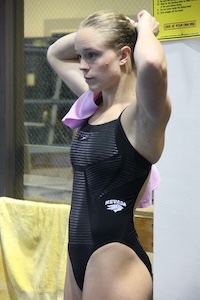
How has high-level competition shaped your philosophy as a coach?
Competing at the Olympic level taught me that performance is as much about mindset as it is about physical ability. Success does not happen overnight. It is about building consistency and endurance, mentally and physically, over time. I remind my divers that we are not aiming to peak in October. We are preparing for championships months from now. The same idea applies in academics. Steady effort always outlasts a last-minute rush.
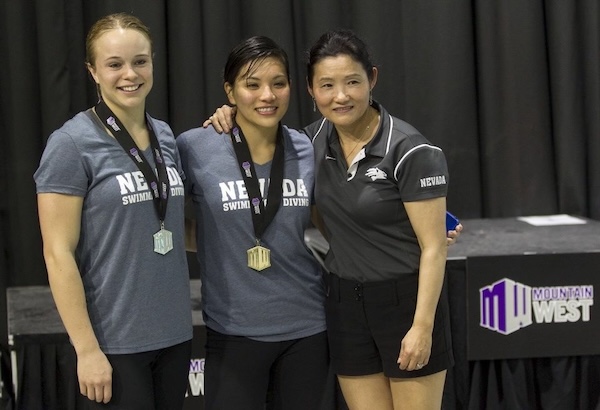
How do you help your athletes build resilience and confidence?
It starts with trust, trust in themselves, in their training and in the work they have already done. By the time they reach competition, the learning is behind them. It is time to perform and enjoy it. I also remind them that setbacks are part of the process. You cannot let a missed dive define the next one. Reset, refocus and move forward. That kind of resilience helps in sport, school and life.
Public health emphasizes lifelong wellness. How do you bring that into your coaching?
To me, wellness is about small, sustainable habits such as how you eat, how you rest and what you consume mentally and physically. I talk to my athletes about nutrition, balance and using their energy wisely. Our health is something we can influence every day through our choices. My goal is to help them graduate as healthy, confident people who understand that their well-being is a lifelong priority.
Many students face obstacles. How can lessons from diving help them overcome challenges?
Diving teaches you how to fall and get back up. It is not about avoiding mistakes; it is about responding to them. Whether it is a bad practice or a difficult week in class, I tell my athletes to come back stronger. Each challenge is a chance to grow. That mindset of showing up, learning and improving applies everywhere.
What do you hope students take from your example?
I hope they see that hard work and positivity go together. Success is not perfection. It is perseverance. If you keep showing up, give your best effort and bring a positive attitude, good things follow. That is true in athletics, academics and everything beyond Nevada.
